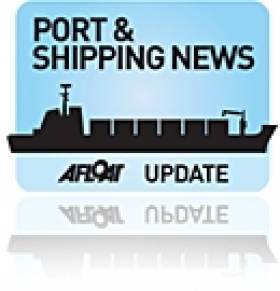Displaying items by tag: cadets
US-Based Training-Ships to Visit Cork
The call is part of a 55-day training cruise that will include ports in the Mediterranean and also US domestic ports. The itinerary includes Norfolk, Vaginia (6-9 May), Valetta, Malta (25-28 May), Civitavecchia, Italy (31 May-3 June ) Cobh (12-16 June) and to Portland, Maine 25-26 June.
Students, officers and crew will be onboard the 16,000 tonnes State of Maine which is a 500-foot long former oceanographic vessel that served in the US Navy as the USNS Tanner. In 1997 she was converted to accommodate the training needs of the college.
The Maine Maritime Academy was founded in 1941 and enrolls more than 900 students from 35 states and from several foreign countries. Students in the college are awarded A.S., B.S., and M.S. degrees in 15 fields of study.
State of Maine is scheduled to berth at the Port of Cork's deepwater quay at the Cobh Cruise Terminal which is expected to welcome over 50 cruiseships and 100,000 visitors this season. The vessel's departure will be followed by the arrival of the second training-ship the 17,000 tonnes Empire State on 22 June which is to make a shorter two-day stopover.
Since 1989 she has been operated by State University of the New York Maritime College which annually takes cadets across the world onboard the 565-foot vessel to learn the skills in running the ship and the maritime industry.
The former cargoship was built for the States Steamship Company in 1961 as the Oregan at Newport News Shipbuilding and Drydock Company, in Newport News, Virginia. Despite conversion for her current role she retains most of her original features and she presents a distinctive profile with the superstructure positioned amidships between the cargo-holds.





























































